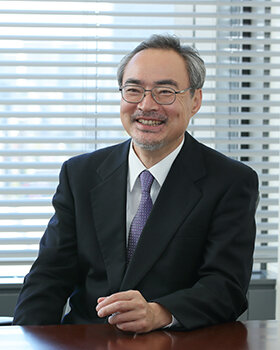レポート エネルギー・環境 2019.02.19
CIGS 国際シンポジウム 「Evolution of Technology and Rational Global Warming Policy」- 講演要旨・質疑応答要旨
キヤノングローバル戦略研究所(CIGS)は2018年11月20日に、国際シンポジウム「Evolution of Technology and Rational Global Warming Policy」を開催しました。(モデレーター:杉山大志研究主幹)。これは同シンポジウムの「講演要旨・質疑応答要旨(日本語)」です。
開催趣旨
The symposium consists of two parts.
Part 1: Potential Impacts by Global Warming
Global Greening Versus Global Warming, Matt Ridley
I am a passionate champion of science. I have devoted most of my career to celebrating and chronicling scientific discovery. I think the scientific method is humankind's greatest achievement, and that there is no higher calling. So what I am about to say about the state of climate science is not in any sense anti-science. It is anti the distortion and betrayal of science. I am still in love with science as a philosophy; I greatly admire and like the vast majority of scientists I meet; but I am increasingly disaffected from science as an institution. The way it handles climate change is a big part of the reason.
After covering global warming debates as a journalist on and off for almost 30 years, with initial credulity, then growing skepticism, I have come to the conclusion that the risk of dangerous global warming, now and in the future, has been greatly exaggerated, and the benefits of global greening by CO2 has been greatly downplayed, while the policies enacted to mitigate the risk have done more harm than good, both economically and environmentally, and will continue to do so.
The Risks and Benefits of Global Warming, Taishi Sugiyama
A brief overview of the risks and benefits of global warming is provided.
Part 2: Technological Innovation and Rational Global Warming Policy
How Technological Innovation Happens, Matt Ridley
Technology is developing the kind of autonomy that hitherto characterized biological entities. Technology is self-organizing and can, in effect, reproduce and adapt to its environment. It thus qualifies as a living organism, at least in the sense that a coral reef is a living thing. Sure, it could not exist without animals (that is, people) to build and maintain it, but then that is true of a coral reef, too.
And who knows when this will no longer be true of technology, and it will build and maintain itself? The "technium", the evolving organism that our collective machinery comprises, is already a very complex organism that often follows its own urges. It wants what every living system wants: to perpetuate itself.
How to Get the Technologies to Solve the Climate Problem, Taishi Sugiyama
The advance of technology in general, including ICT such as IOT, AI, robot, etc., helps the innovation of CO2 cut technologies. To promote this, economic activity must be vigorous, and regulatory systems must be supportive. Dedicated R&D policies for CO2 cut technologies play roles, but they alone cannot bring about the disruptive technologies in the future, as they will heavily benefit from the progress of technology in general. Care should be taken that dedicated CO2 cut policy should not undermine macro-economy and hamper innovation in general and consequently technologies for CO2 cut. Such consideration becomes more relevant as nations aim at more ambitious emissions cut.
→「講演要旨」「質疑応答要旨」全文を読む
<第1部>
マット・リドレー氏 講演要旨「Global Greening Versus Global Warming」PDF: 355KB
杉山大志氏 講演要旨「化石燃料のリスクと便益」PDF: 208KB
質疑応答要旨PDF: 244KB
<第2部>
マット・リドレー氏 講演要旨「How Technological Innovation Happens」PDF: 269KB
杉山大志氏 講演要旨「温暖化問題解決のためのイノベーション戦略」PDF: 276KB
質疑応答要旨PDF: 289KB
→同シンポジウムのイベント開催報告はこちら
CIGS 国際シンポジウム 「Evolution of Technology and Rational Global Warming Policy」
